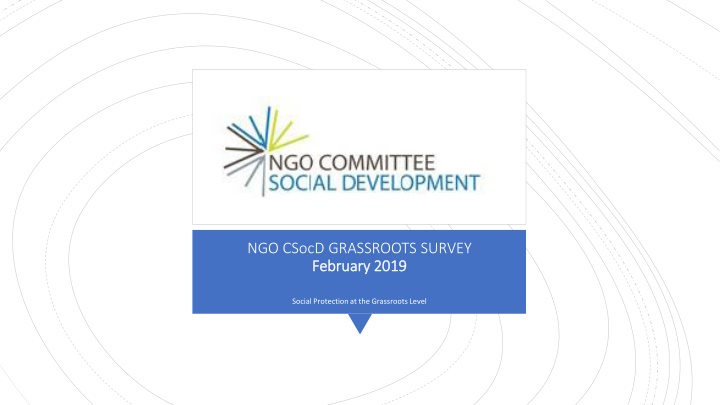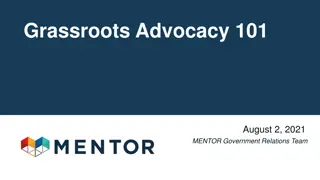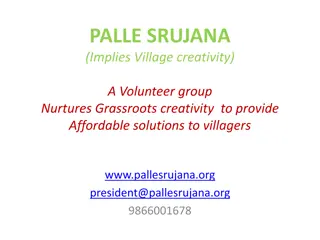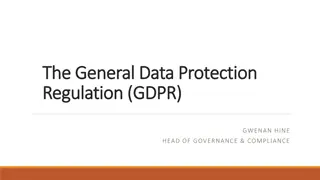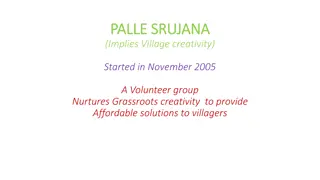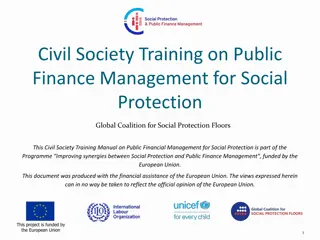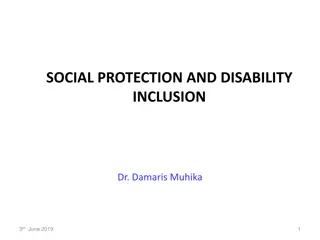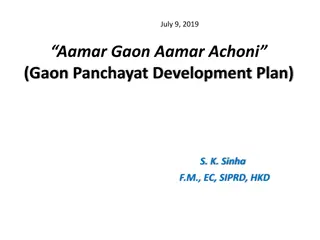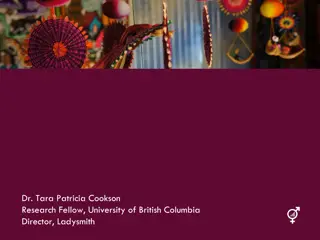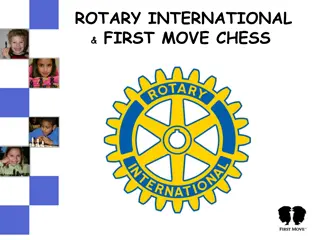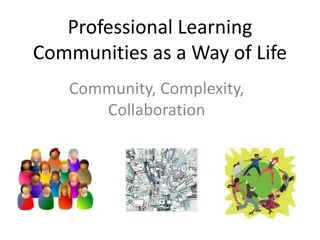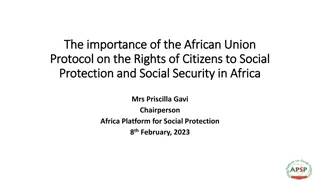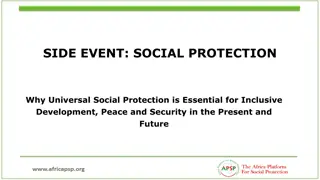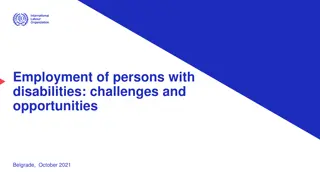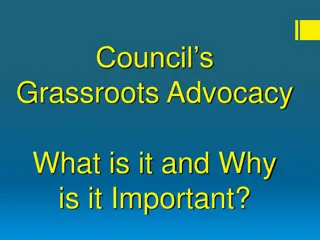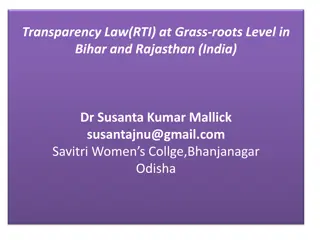Enhancing Social Protection at Grassroots Level: Empowering Communities
Social Protection as a human right involves policies to prevent and reduce poverty. This survey focuses on grassroots initiatives for effective implementation and community empowerment in February 2019.
Download Presentation

Please find below an Image/Link to download the presentation.
The content on the website is provided AS IS for your information and personal use only. It may not be sold, licensed, or shared on other websites without obtaining consent from the author.If you encounter any issues during the download, it is possible that the publisher has removed the file from their server.
You are allowed to download the files provided on this website for personal or commercial use, subject to the condition that they are used lawfully. All files are the property of their respective owners.
The content on the website is provided AS IS for your information and personal use only. It may not be sold, licensed, or shared on other websites without obtaining consent from the author.
E N D
Presentation Transcript
NGO CSocD GRASSROOTS SURVEY February 2019 February 2019 Social Protection at the Grassroots Level
Social Protection, or social security, is a human right and is defined as the set of policies and programmes designed to reduce and prevent poverty and vulnerability throughout the life cycle. Social protection includes benefits for children and families, maternity, unemployment, employment, injury, sickness, old age, disability, survivors, as well as health protection. Social protection systems address all these policy areas by a mix of contributory schemes (social insurance) and non-contributory tax-financed benefits, including social assistance. Definition
A life-cycle approach was used to focus the questions on: Universal Healthcare Social Protection for Children Social Protection for Women and Men of Working Age Maternal Healthcare Workers Compensation and Disability Social Protection for Older Women and Older Men Pensions Long Term Care The Approach
The surveys aim was to determine the existence of social protection programs as experienced at the grassroots level and to question the factors that influence satisfaction with the programs available Over 200 respondents in 28 countries Background
Health protection, both direct and indirect, is essential for achieving most of the Sustainable Development Goals (SDGs). An enabling framework providing legal health coverage, sufficient public funding and an adequate supply of health workers enjoying good working conditions to provide quality services, has the potential to reduce mortality and increase the health status of the population (WHO, 2017). Universal Healthcare
Over 70% said public or government funded clinics and hospitals 50% said public or government funded doctors Where do members of the community go for healthcare: 30% said private insurance clinic/hospital/doctor 9% said no healthcare available
64% of respondents said good to excellent Overall, how would you rank the quality of healthcare in the community served by your organization? 18% said average 18% said fair to poor
For children, lack of access to adequate nutrition, education, and healthy environments is particularly harmful, with the consequences of irreversible damage to their mental and physical development and well- being. Social Protection for Children
53% of respondents said good to excellent Overall, how would you rank the social protection benefits for children in your community? 25% said average 22% said fair to poor
Social protection plays a key role in ensuring income security for women and men of working age, which is an essential component of the well-being of individuals and families, and for the achievement of the Sustainable Development Goals. Social Protection for Men and Women of Working Age
38% of respondents said good to excellent Overall, how would you rank the social protection for women and men of working age in your community? 25% said average 38% said fair to poor
Another fundamental component of universal health care is maternal health care, namely effective access to adequate medical care and services during pregnancy, childbirth and beyond, to ensure the health of both mothers and children. Maternal Healthcare
60% of the respondents said good to excellent Overall, how would you rank the quality of maternal care in your community? 20 % said average 20% said fair to poor
By ensuring income security in the event of unemployment, employment injury, disability, sickness and maternity, as well as sufficient earnings or other needs, social protection systems support women, men and their families in coping with the financial consequences of life events, to find and sustain decent and productive employment and facilitate effective access to healthcare and other services. Workers Compensation and Disability
36% of the respondents said good to excellent Overall, how would you rank the quality of workers compensation and disability protection in your community? 30% said average 34% said fair to poor
Insuring income security for people ensuring their old age is a crucial objective among the welfare goals that modern societies seek to realize. Throughout their working life, when most people enjoy good health and productive capacity, they contribute to national development and progress, so it would seem fair that once they get older they are not left behind and that prosperity is shared with them. SocialProtection for Older Women and Older Men
26% of the respondents said good to excellent Overall, how would you rank the adequacy of available pensions? 32% said average 42% said fair to poor
What do you think? Take-Aways
